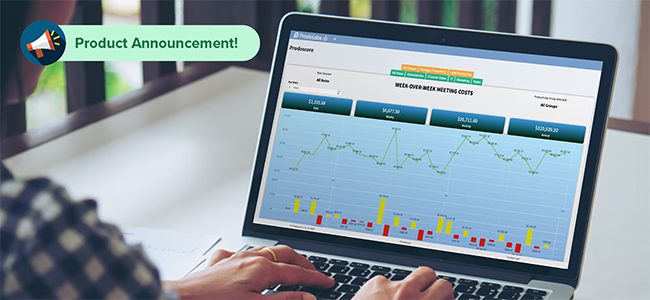Working From Home Actually Helps With Separating the Personal from the Professional
Even after all this time working from home, employers and employees alike are still split on many aspects of remote work. Are employees more or less productive when working from home? Are businesses with remote workforces more profitable? Despite the evidence consistently proving that working from home brings many benefits to the table, these questions are still being hotly debated by business leaders.
One of the biggest sticking points for some is if remote work helps employees maintain a healthy work-life balance. After all, when your home doubles as your office, isn’t it tough for employees to keep their personal and professional lives separate? With your computer always in sight and your spouse, children, or roommates just feet away from where you’re sitting each day, you would think separating your two lives would be difficult.
Despite how it may seem, working from home actually helps employees separate their personal and professional lives. The nature of working from home and the close proximity of family, friends and housemates can actually have significant benefits for your work-life balance. A 2020 survey by Robert Half revealed that 60% of employees believed that their work-life balance improved when working from home.
Personal and professional have never been 100% separate
No matter what anybody says, our personal and professional lives have never been 100% separate - it’s just a fact of life. If something bad happened to you this morning and you went to work, there’s a very good chance you’d bring that with you to the workplace. Whether it’s stress triggered by the bad event, a sudden change in mood, or an increase in anxiety, that bad event in your personal life is suddenly affecting your professional life.
This goes the other way, too. If you have a bad day at work, odds are you’re going to bring the stress, anxiety, or just general bad feelings home with you at the end of the day. No matter how hard we try, it’s just not possible to 100% separate our personal and professional lives because they constantly bleed into one another.
With a great many of us currently working from home and awaiting the end of the COVID-19 pandemic, the only thing that’s really changed with regards to our personal/professional separation is physical distance. While we’re not currently working alongside our employers, supervisors and colleagues or commuting to and from the office, the same emotional factors are at play.
If you wake up to find that your coffee maker has broken overnight, your car has been broken into, or your child is sick, odds are it’s going to affect the way your work day goes, and vice versa. One bad client call or sloppy presentation could throw you off for the rest of your night, even if all you have planned is an evening on the couch with a good movie. The best we can do (and all we’ve ever been able to do), is reduce the effects of these things by improving our work-life balance and focusing on our own wellness.
How working from home helps with separating personal from professional
Flexibility. That one little word has completely changed the way we work, allowing employees everywhere to separate their personal and professional lives despite working and living in the same location. Remote work offers flexibility that working from the office can’t possibly match.
This flexibility means that when something goes wrong during your day, you can address it much sooner than you would if you were in an office. When personal emergencies arise during your work day, more often than not you’ll be able to tend to it without throwing your entire day into chaos. It could mean adding an extra hour to the end of your work day, catching up while you’re on-the-go, or simply starting a little earlier the following day, but it’s often easier than finding a private place in the office to address something.
The added element of flexibility is what makes working from home so effective. Your team has more of a say in creating a schedule that works for them. They get to work in an environment that promotes creativity and efficiency and also deal with personal situations in a timely manner.
Additionally, it is easier to step away from work when a member of your team needs a break. If they are in the office and need a physical break from work, it’s tough to walk away without being stopped by colleagues on the way out the door.
This can lead to a much healthier work-life balance, as it gives employees the chance to focus on what matters most, and reduces the likelihood that these stressors affect their professional life.
Work with employees to create a healthy work-life balance
Keeping personal and professional lives separate isn’t just something you can set and forget. Employers need to be supporting their workforce to create and maintain a healthy work-life balance to ensure employee satisfaction and reduce the very real threat of burnout. This can be done quite easily by establishing core working hours and boundaries - know when your employees will be working, and make sure that they’re not working outside of those core hours of availability unless otherwise discussed.
Encourage your workforce to take part in non-work activities like video and audio chats to form closer personal bonds and promote social connections, and make sure employees know that they can come to you in times of need. Check in regularly (without being too intrusive), and schedule regular video and audio conference calls between teams so that everybody stays in the loop.
Promote healthy habits like employees not working from the moment they wake up, only using their office space for work purposes, getting outdoors or otherwise leaving the workspace for short periods, and knowing when to ask for help. These seemingly small things will go a long way in creating a clear line between personal and professional, ultimately reducing stressors, increasing employee satisfaction, and improving remote worker productivity.
Being able to detect and prevent burnout and recognize employees for exceptional performance during less-than-ideal circumstances can have major positive effects for your workplace. Productivity intelligence solutions like Prodoscore offer employers and managers deeper insight into the productivity of your workforce, making it possible to identify when employees are nearing burnout or require additional assistance, detect major changes in the way your teams work as they happen, and be alerted when members of your team are going above and beyond.
By now, almost everyone is used to working from home and has mostly reported a better work-life balance after the transition. However, it is still necessary to separate the personal from the professional to create that happiness. As a manager, you can make sure employees aren’t working outside of scheduled hours all the time, that they have frequent but non-invasive check ins to see how they are doing, and offer as much support as your company will allow in the way of mental health services and things that may make their home office more comfortable and productive.

